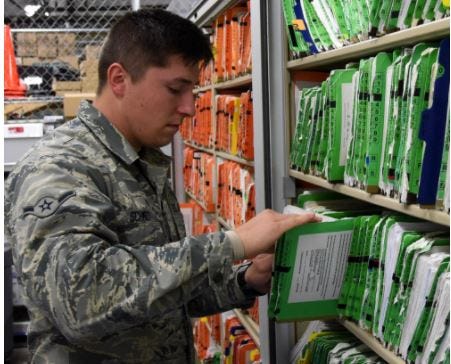
The Department of Veterans Affairs has ordered a 12-week review of its massive $16 billion electronic health record overhaul, plagued by delays.
The review will include a full assessment of the modernization effort to ensure success for future rollouts at more VA medical centers, officials said in the announcement.
In a call with reporters Wednesday, VA Press Secretary Terrence Hayes and Deputy Assistant Secretary for Public Affairs Melissa Bryant said that the review did not mean further delay for the overhaul or that work would stop as the department continues to roll out the new system at more facilities.
“A successful EHR deployment is essential in the delivery of lifetime, world-class health care for our veterans,” VA Secretary Denis McDonough said in a statement Friday. “After a rigorous review of our most-recent deployment at Mann-Grandstaff VA Medical Center, it is apparent that a strategic review is necessary. VA remains committed to the Cerner Millennium solution, and we must get this right for veterans.”
Problems implementing the new system were outlined in reports released in April by the VA Inspector General, including that VA expected the system to cost another $6.1 billion more than the initial $10 billion 10-year contract with Kansas-based Cerner Corp. That contract was awarded without competitive bidding. Of that additional $6.1 billion, about $4.3 billion is for infrastructure, including IT equipment. VA has been plagued by outdated IT systems -- some dating back nearly 50 years.
Last month, the Government Accountability Office recommended delaying the project until continued issues were addressed.
The new health record system, intended to create a universal electronic health record for troops and veterans, has been a multi-year project for VA and the Pentagon. But this is just the most recent version in a track record of past failures to overhaul the records systems for both federal agencies that have met delay after delay and billions of dollars already spent.
VA officials said this week that the review did not indicate "performance issues or dereliction of duty" on the part of either the department or Cerner, the company that built the system. The department announced initial deployment of the new system after testing at Mann-Grandstaff Medical Center in Spokane in October last year and at VA's West Consolidated Patient Account Center in Las Vegas in November.
This week, Rep. Cathy McMorris Rodgers, R-Washington, sent a letter to McDonough with concerns about the rollout at Mann-Grandstaff, citing "new stress" on the medical center because of continued issues, such as staff support and prescription delays for veteran patients.
By April of last year, VA had already twice delayed the launch of the anticipated system, set to overhaul the department's legacy health records system, VistA, along with linked partner systems at the Defense Department. Concerns about the project have included ensuring that data-sharing capabilities for the new system would match up between the federal departments and particularly community care providers. So far, more than 24 million veteran records have been moved to the new system.
In August, VA announced the beginning of a rollout for a new appointment scheduling tool beginning at the VA Central Ohio Healthcare System. The Centralized Scheduling Solution is intended to be a "critical component" of the new electronic health record system by expediting care coordination throughout VA, according to the department. The new scheduling tool is not part of the 12-week review, VA spokeswoman Susan Carter told Connecting Vets, and is now included as part of the full electronic health record system deployment, already operational in Ohio.
In November, VA also announced plans to integrate prescription drug monitoring program data into the health records system to improve safe prescribing practices across the department's healthcare system.
VA attributed some of the recent difficulties implementing the system to the coronavirus pandemic.
“Our dedicated VA professionals continue to work feverishly on this effort even as we maneuver through the complexities and surges of the COVID-19 pandemic,” McDonough said.
The 12-week review is expected to analyze the launch at Mann-Grandstaff, with the Columbus, Ohio VA Healthcare System expected to go live with the system next this spring, though adjustments may be made for the order of subsequent deployments as a result of the review, officials said. According to the current schedule, all VAs are expected to be using the new system by 2028.
"We have to get it right the first time," Bryant said. "This is not a look of bad faith on Cerner or VA, it's just a gargantuan task."
The review is expected to focus on finding areas for more efficiency at Mann-Grandstaff and upcoming sites, conducting more research into improvements for veterans and the patient portal experience, data sharing and revenue cycle improvements, according to VA's announcement. No changes within the contract are expected at this time, officials said.
—
Reach Abbie Bennett: abbie@connectingvets.com or @AbbieRBennett.
Sign up for the Connecting Vets weekly newsletter to get more stories like this delivered to your inbox.



